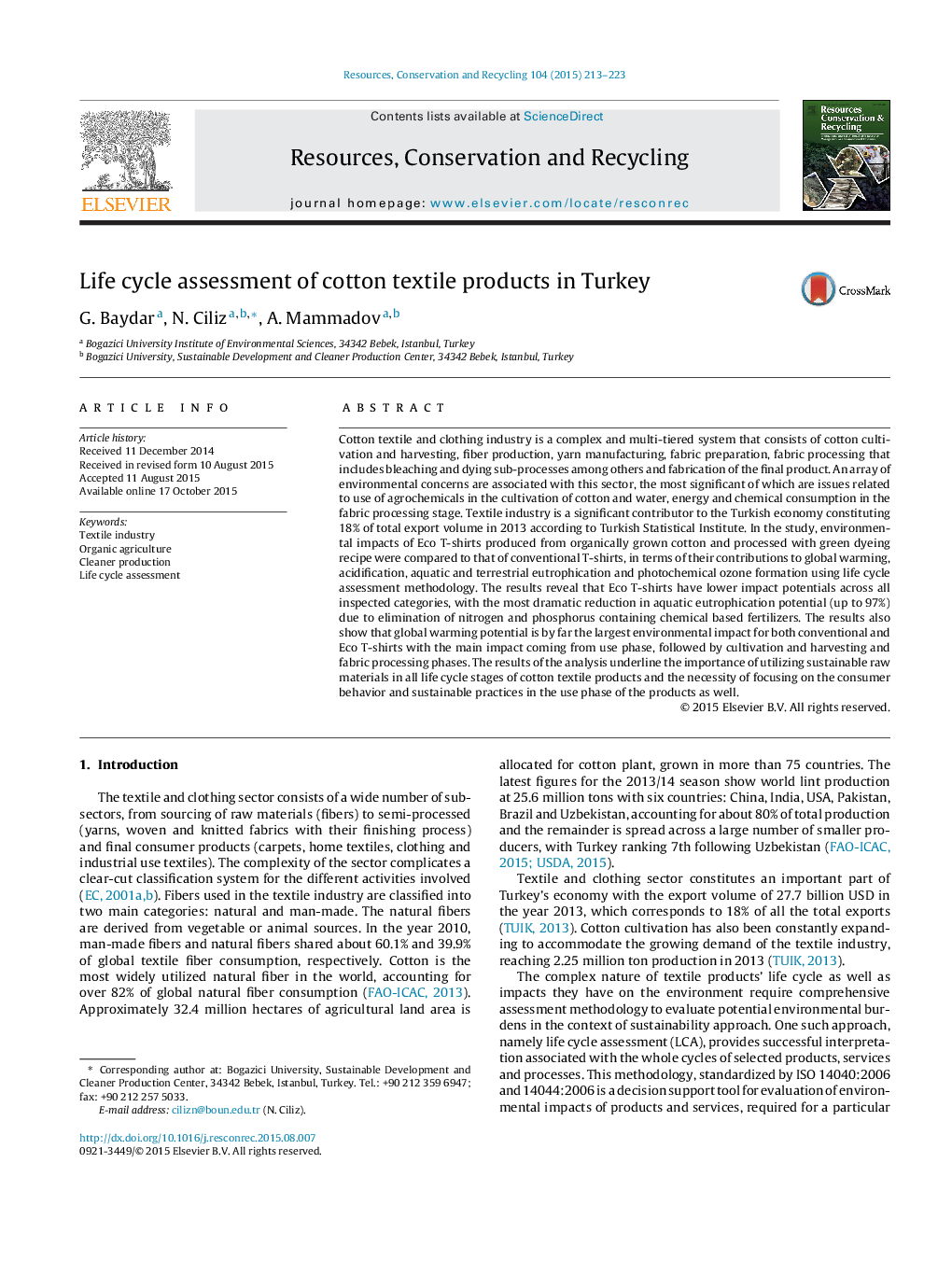| کد مقاله | کد نشریه | سال انتشار | مقاله انگلیسی | نسخه تمام متن |
|---|---|---|---|---|
| 1062824 | 948179 | 2015 | 11 صفحه PDF | دانلود رایگان |
• Eco T-shirts made from organic cotton were compared to conventional T-shirts by LCA.
• Green dyeing recipe was used in fabric processing of Eco T-shirts.
• Global warming was the main environmental impact for both conventional and Eco T-shirts.
• Aquatic eutrophication potential was significantly lower for Eco T-shirts.
Cotton textile and clothing industry is a complex and multi-tiered system that consists of cotton cultivation and harvesting, fiber production, yarn manufacturing, fabric preparation, fabric processing that includes bleaching and dying sub-processes among others and fabrication of the final product. An array of environmental concerns are associated with this sector, the most significant of which are issues related to use of agrochemicals in the cultivation of cotton and water, energy and chemical consumption in the fabric processing stage. Textile industry is a significant contributor to the Turkish economy constituting 18% of total export volume in 2013 according to Turkish Statistical Institute. In the study, environmental impacts of Eco T-shirts produced from organically grown cotton and processed with green dyeing recipe were compared to that of conventional T-shirts, in terms of their contributions to global warming, acidification, aquatic and terrestrial eutrophication and photochemical ozone formation using life cycle assessment methodology. The results reveal that Eco T-shirts have lower impact potentials across all inspected categories, with the most dramatic reduction in aquatic eutrophication potential (up to 97%) due to elimination of nitrogen and phosphorus containing chemical based fertilizers. The results also show that global warming potential is by far the largest environmental impact for both conventional and Eco T-shirts with the main impact coming from use phase, followed by cultivation and harvesting and fabric processing phases. The results of the analysis underline the importance of utilizing sustainable raw materials in all life cycle stages of cotton textile products and the necessity of focusing on the consumer behavior and sustainable practices in the use phase of the products as well.
Journal: Resources, Conservation and Recycling - Volume 104, Part A, November 2015, Pages 213–223
